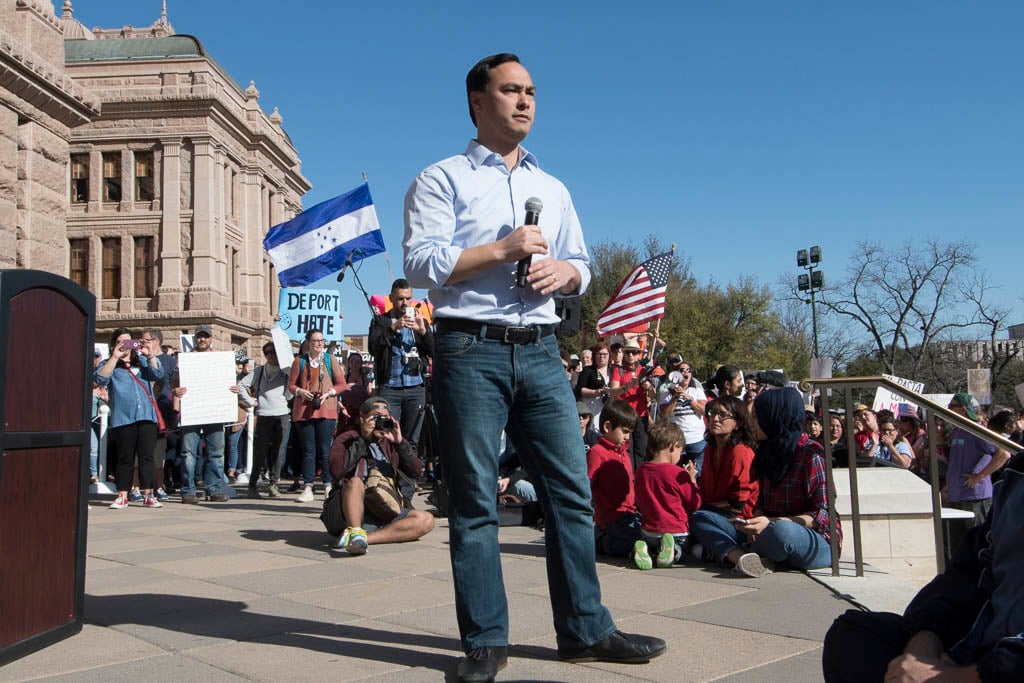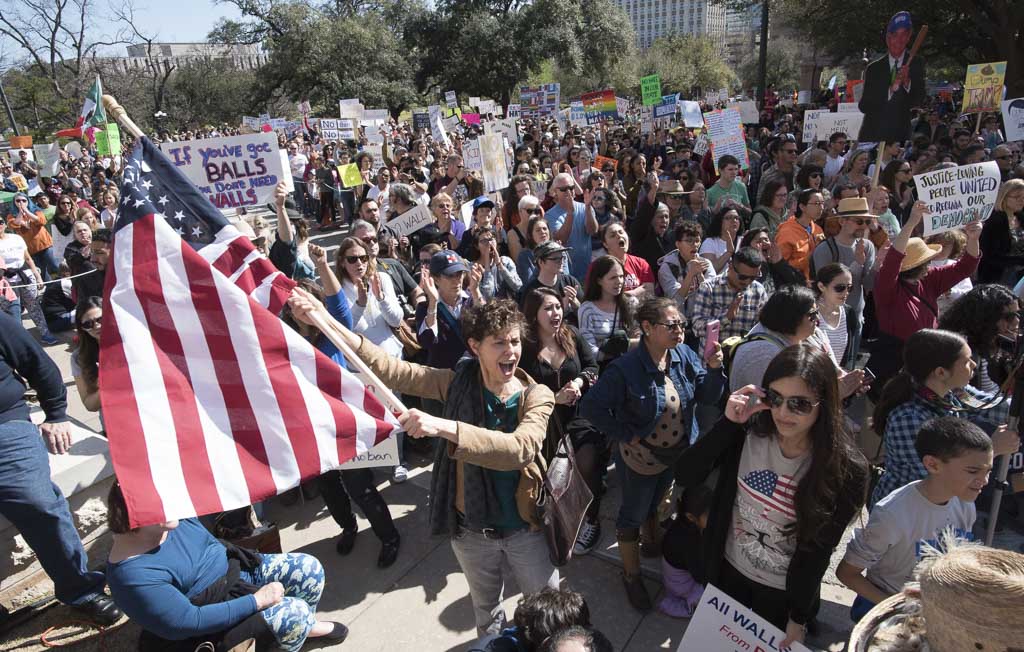Thousands at Texas immigration rally told they're being heard in D.C.
/https://static.texastribune.org/media/images/2017/02/25/X_BDC3392X.JPG)
Rallies at the Texas Capitol are an everyday affair, but U.S. Rep. Joaquin Castro, D-San Antonio, told thousands of Texans — gathered Saturday afternoon to protest President Trump’s refugee ban and border wall proposal — that their efforts are making a difference.
"(People) ask me, sometimes desperately, wanting to know what they can do, and wanting to know whether what they're doing is making a difference," he said. "I want to tell you this: What you need to be doing is what you're doing today."
Castro, and fellow congressman Beto O'Rourke, D-El Paso, headlined the rally organized by immigrant and Muslim rights groups. Dubbed “No Ban, No Wall,” the rally brought together two populations that in the last month have felt persecuted by White House policies.

Rallies and protests, Castro said, have successfully caught the attention of federal representatives and senators, especially Republicans. Because of nationwide protests, Castro said, Republicans might not repeal the Affordable Care Act and have expressed support for a full investigation of Russia’s involvement in the 2016 election.
“Please know this is a beautiful thing,” Castro told the crowd. “You are making a difference.”
Speaking primarily in Spanish, O’Rourke assured the crowd that his hometown of El Paso is the safest city on the border and in the country. This, he said, is because immigrants in the community trust law enforcement authorities and aren’t afraid of deportation.
"President Trump and my colleagues in Congress want to strengthen the border, but they don't understand that we are already the safest community," he said. "That security depends on the respect and dignity given to every member of our community."
O’Rourke, who earlier on Saturday told the Tribune he is eyeing a 2018 run for Senate against Republican incumbent Sen. Ted Cruz, asked the crowd whether they preferred walls or bridges, hate or love, fear or peace. This, he said, is the time to make those decisions.
"Together, Austin, the border, every city in this state, we're going to take our communities, our state, our Senate and our country back,” he said.
Immigration attorneys, activists, immigrants, refugees and members of Muslim communities also spoke during the three-hour long rally. The crowd and its posters were waving flags representing the LGBTQ community of countries like Palestine, Mexico and Honduras. Together, they shouted “No wall, no ban,” and other chants that called for unity and the end of Immigrations and Customs Enforcement, or ICE.
A Syrian refugee who arrived in the country 60 days ago introduced his young daughter, who said she was really happy she came to America because she lost two years of school after fleeing from her home country.
“I now know how much little kids how they suffer under the war,” she said.
Chris Hamilton, a Dallas attorney who worked with immigrants from the seven majority-Muslim countries banned by executive order last month, said he was amazed by how many Texas attorneys offered services during the frenzy caused by the ban. Hamilton, who also worked on the case of a Salvadoran refugee who found out she had a tumor while on ICE detention, told the crowd that lawyers across the country are “ready to fight” but need the public’s help.
“I've seen the best of what this country has to offer and I see all of you here, there is no reason to hide folks,” he said. “The purpose of these bans and these walls is only to create a divide where we should all be on the same side.”

Other speakers included State Rep. Celia Israel, D-Austin, and Austin councilman Gregorio Casar, who said he’s proud of Travis County Sheriff Sally Hernandez’ sanctuary policy. That policy has put the new sheriff at odds with Gov. Greg Abbott and other Republican state officials.
Nestor Lopez, a Honduran immigrant who has lived in the U.S. for eight years, said he has been to most Austin protests and rallies held in response to the new administration in Washington. This one was the one, he said, where he felt most supported.
"In the other ones, it was just Spanish people, Mexicans, Hondurans, people from all over Central America," he said. "This one was different because it had people from here — white people, black people, Muslims, Mexicans, people from all over. Now they know that we are united."
Information about the authors
Learn about The Texas Tribune’s policies, including our partnership with The Trust Project to increase transparency in news.
/https://static.texastribune.org/media/profiles/Mariana_Alfaro.jpg)